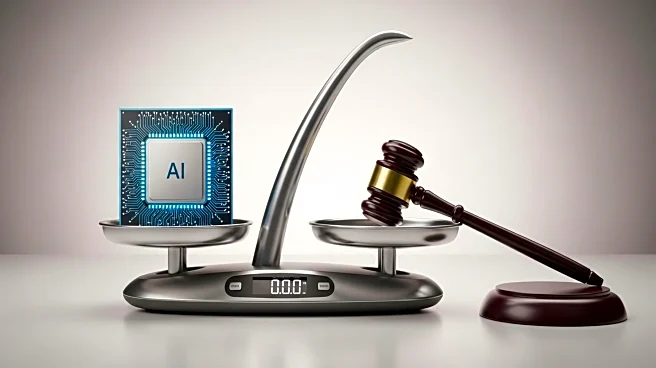What's Happening?
The legal industry is increasingly adopting artificial intelligence to enhance litigation support, particularly in areas like legal research and document review. AI-driven tools are streamlining processes by providing efficiently distilled insights, transforming traditional legal practices. A key aspect of this transformation is effective prompt engineering, which involves strategically interacting with AI to obtain desired outcomes. This skill is becoming essential for legal professionals aiming to leverage AI in their practice.
Why It's Important?
The integration of AI in legal practices offers significant efficiency gains, potentially reducing the time and cost associated with litigation support tasks. However, it also raises ethical considerations, such as ensuring the accuracy and reliability of AI-generated insights. Legal professionals must balance these benefits with ethical responsibilities, maintaining the integrity of legal processes. The shift towards AI-driven tools could reshape the legal industry, influencing how legal services are delivered and perceived.
Beyond the Headlines
The use of AI in legal settings may prompt discussions on the ethical implications of relying on technology for critical legal decisions. Issues such as bias in AI algorithms and the transparency of AI processes could become focal points for legal ethics debates. As AI becomes more prevalent, the legal industry may need to establish guidelines and standards to address these concerns, ensuring that technology enhances rather than undermines legal practice.









